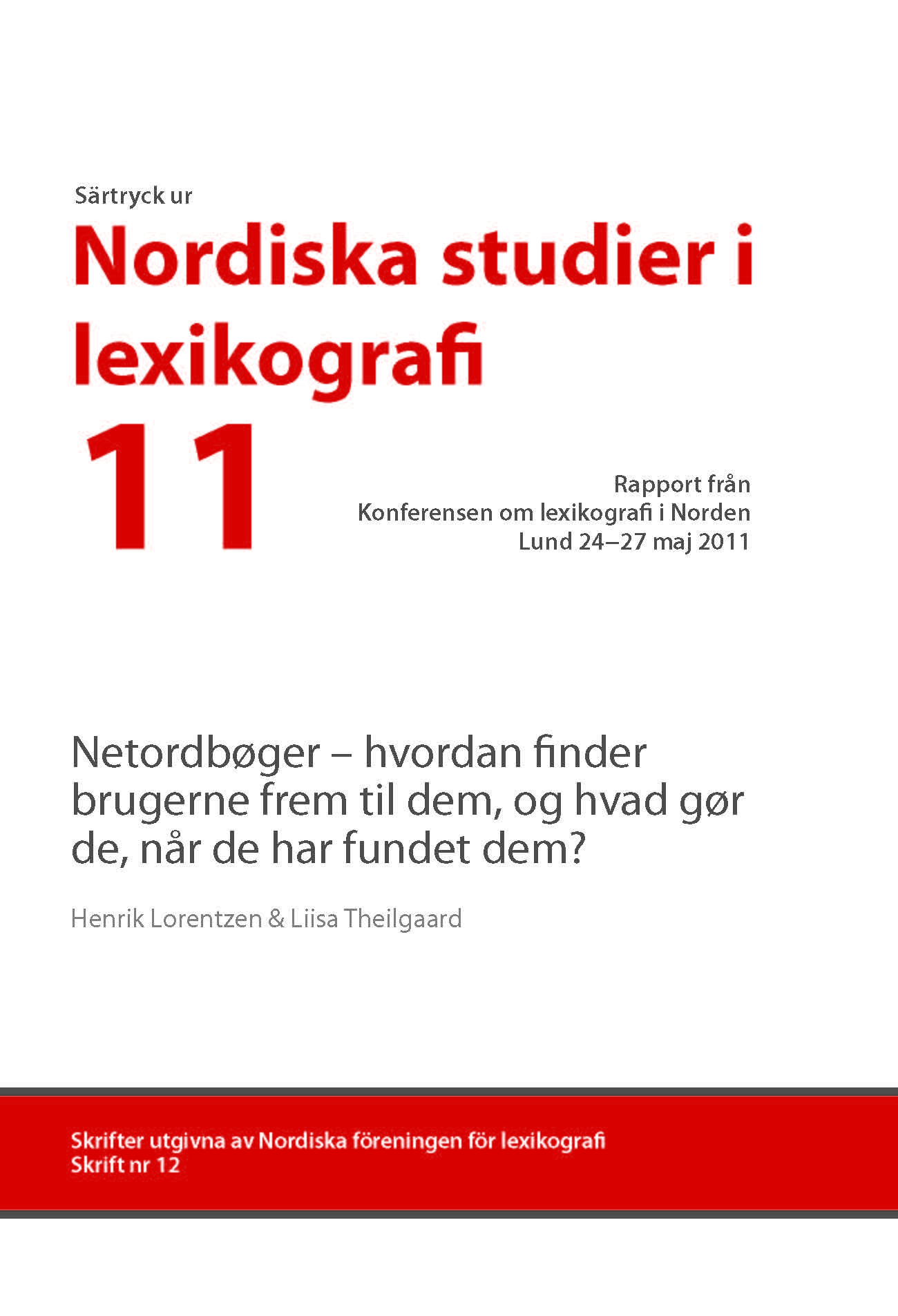Netordbøger – hvordan finder brugerne frem til dem, og hvad gør de, når de har fundet dem?
Nøgleord:
netordbøger, brugeradfærd, søgestrategier, webstatistik, søgemaskineoptimeringResumé
In general, user behaviour studies of online dictionaries have focused on user behaviour once the user is on the site. But before a potential user even reaches this stage, he or she must succeed in finding the dictionary on the Web. The purpose of this paper is to investigate users’ linguistic search strategies before they enter our dictionary site, ordnet. dk. What kind of search engine queries are successful and why (not)? Similarly, we have studied the queries in the search field of our online dictionaries. Are the search strategies the same as when using a search engine? Taking the no-match searches as a starting point, we have asked ourselves whether our content and search functionality correspond to the search behaviour of the users, i.e., if we can give an answer to the users’ query and if data are organized and presented in an appropriate way. Given the results of these analyses, we decided to make several changes to the site in order to optimize user access and attract new users. We present these changes and the results and finally some ideas about future development. The paper is based on empirical data from Google Analytics and our log files.Downloads
Publiceret
2012-01-01
Citation/Eksport
Lorentzen, H., & Theilgaard, L. (2012). Netordbøger – hvordan finder brugerne frem til dem, og hvad gør de, når de har fundet dem?. Nordiske Studier I Leksikografi, (11). Hentet fra https://tidsskrift.dk/nsil/article/view/19357
Nummer
Sektion
Artikler
Licens
Nordisk Forening for Leksikografi/NSL og forfatterne.





